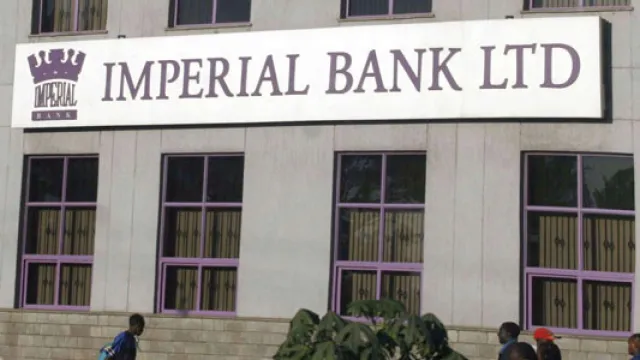Sale of Imperial Bank set to rekindle fight between regulator and former shareholders

Sale of Imperial Bank set to rekindle fight between regulator and former shareholders
Some insiders are speculating on the sale of Imperial Bank with expectations that fellow Ismailia lender Diamond Trust Bank will acquire it in a deal similar to State Bank of Mauritius Chase Bank take over.
The deal is said to be a bitter pill with depositors set to get on 30 percent of their deposits as per the DTB proposals and only 17 percent of the loan book will be carved out.
DTB is said to have beaten Kenya Commercial Bank to the bank both of which handled part repayments of Imperial Bank deposits when it went under.
Shareholders declined to participate in the process blaming the Central Bank of Kenya of keeping them in the dark on Imperial Bank true state of affairs.
The deal has been kept under wraps since September last year when CBK put out intention to sell it; and in October, when CBK announced that it had shortlisted investors to conduct detailed due diligence.
The news will be welcome to depositors who have been unable to get part of their money for over two and a half years.
SBM has been allowed to cherry-pick another failed lender, Chase Bank’s most promising accounts, leaving almost half of its assets in a shell that is likely to be liquidated.
CBK Governor Patrick Njoroge’s peers at the Bank of Uganda (BoU) have managed to resolve two bank collapses even as the three Kenyan lenders remain in limbo.
BoU sold Crane Bank to DFCU, the landlocked country’s most profitable bank, after the former hit headwinds due to fraud and mismanagement by its owner, disgraced tycoon Sudhir Ruparelia.
When Imperial Bank collapsed in October 2015, BoU sold the Ugandan subsidiary within six months to Tanzania’ Exim Bank which quickly renamed it to Uganda Exim Bank.
The Kenyan regulator is being sued by Imperial former owners for mishandling the receivership which has wiped out the troubled lenders' valuation.



